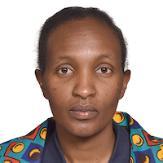 By Dr. Reson Marima
By Dr. Reson Marima
Interim Botswana Country Director
World AIDS Day offers a chance for us to pause and reflect on our mission. In Botswana, we commemorate our early success in the fight against HIV/AIDS. During his ten years in office from 1998-2008, President Festus Mogae made the AIDS response a top priority, launching a robust program to combat the disease and providing free antiretroviral treatment for people living with HIV (PLHIV). It was a novel policy that other African nations would later follow.
In this vein, Botswana recently expanded antiretroviral treatment to include non-citizens, so that all PLHIV can access treatment for free at any public health facility. Initiatives such as these draw us ever closer to ending the epidemic, but there is still more work to do. We are proud to be a part of this continuing effort.
Client-Centered Services
The University of Maryland, Baltimore has been a long-standing partner of the Botswana Ministry of Health and Wellness in developing and implementing Botswana's HIV/AIDS prevention and treatment response. The Ciheb Botswana country office has been both continuing the work and emphasizing client-centered services, meaning services that provide patients with the right service, in the right place, at the right time. This approach is sensitive to client needs and relies on data feedback to adjust treatment protocols for maximum effect.
For the past five years, the Ciheb office in Botswana has been implementing the Botswana Partnership for Advanced Clinical Education (BPACE). The project supported more than 120,000 clients on treatment across 52 healthcare facilities, with nearly 98% of those on treatment achieving viral suppression. Ciheb also partnered with three district health management teams to expand HIV service access through facility-led outreach mobile services to underserved communities in hard-to-reach areas.
BPACE also trained and employed a lay cadre of peer navigators called expert clients. Expert clients are HIV-positive men and women who use their experience living with HIV to help others overcome the many challenges of HIV/AIDS. They help link newly diagnosed PLHIV to treatment, follow up with clients who miss treatment, and provide psychosocial support to address barriers to treatment.
Botswana AIDS Impact Survey and COVID-19
Ciheb is also working closely with the Ministry and the US Centers for Disease Control and Prevention in implementing the fifth Botswana AIDS Impact Survey (BAIS V). This cross-sectional, household-based, nationally representative survey is assessing key HIV-related health indicators such as incidence, prevalence, viral load suppression, and risk behaviors and will describe uptake of key HIV prevention, care, and treatment services. Preparation for the survey began in 2020 but was paused due to COVID-19. The survey is expected to resume in early 2021.
Ciheb has also been supporting the COVID-19 response in Botswana. The response has been focused on ensuring continued treatment of HIV patients: decongesting clinic waiting areas, and expediting clinic visits so that patient exposure would be limited. It also deployed mobile testing clinics and assisted with contact tracing.
The COVID-19 experience taught us many lessons, particularly how fragile our progress in HIV/AIDS is and how we must remain vigilant and be able to respond quickly to new threats. In Botswana, it appears that the worst of COVID-19 is over. We are thankful for that, but we are not about to lower our guard just yet. Years of experience have taught us that epidemics are insidious and very difficult to defeat.
Interim Country Director Reson Marima, MD, is a pediatrician with more than a decade of PEPFAR program experience.
